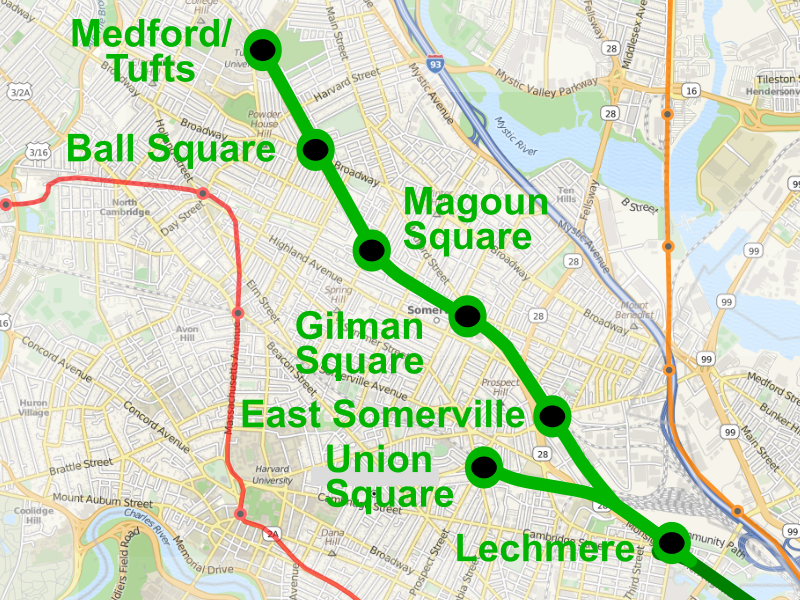By Sara del Nido Budish

by Gryerbaby CC0 1.0
Who could have predicted that the 2024 Presidential race would be defined by a moment of vulnerability?
When President Biden opted to withdraw his candidacy for re-election, he made a clear statement that the interests of the country must override any personal interests he might hold. But his actions also said—implicitly, but no less clearly—that even Presidents can be humble and, yes, vulnerable. It isn’t rare to hear politicians talk about “values.” But values are also expressed through politicians’ choices and interactions, and President Biden’s action was an invitation to reacquaint ourselves with what it looks like in politics to align values with actions—even when it seems to contradict one’s own interests. The country now faces a unique opportunity, and a big challenge: to translate abstract and aspirational values into a process over the next month and beyond.
Processes are always grounded in values, because these broader values drive design decisions.[1] For instance, a decision rule of consensus might reflect values of deliberation, persuasion, and buy-in. A process that relies on representatives to speak for different groups might reflect an emphasis on efficiency (among other values). Ideally, the stakeholders to the process should be the ones determining the guiding values. In the case of the election, we—the American people—are the stakeholders. What values should shape the process for selecting a Democratic nominee?
- Dignity: President Biden has long been dogged with questions about his age, which he oftentimes has used humor to deflect. But the June 27 Presidential debate thrust this conversation into a much more serious realm. The questions he and his family have been forced to navigate are profound and deep. They strike at the heart of other difficult identify dilemmas—am I competent?—and would be difficult for any of us. Indeed, many of us have needed to work through these questions either for ourselves or with a loved one. And President Biden has been in the unenviable position of doing so very much in the public eye, with every move scrutinized and broadcast, and the stakes enormous. It’s hard for any of us to imagine being in that position. With his brief but eloquent letter to the American people withdrawing his candidacy, President Biden reclaimed whatever dignity might have felt threatened, setting an example of grace and integrity. How might we move forward over the next month in a way that not only preserves President Biden’s dignity, but also establishes the importance of dignity in our political system and interactions? What sort of process would humanize the individuals who at times feel so distant from the American people?
- Transparency: The path that many in the Democratic party thus far took for granted is now, suddenly, up for a redesign. How might a process be designed to be as transparent as possible, and, therefore, inclusive as possible of those stakeholders who will be affected by these decisions (namely, us!)? In a thoughtful piece published during the last election cycle, Deanna Pantín Parrish wrote about voting as a dispute system and our own role as stakeholders. In the current moment, yes, we have our vote, but we also have our voices. How might the Democratic Party not only capitalize on this particular moment by keeping the process as transparent as possible, but also perhaps send a signal for the future about how they would like to include the American public in the process of choosing their leaders?
- Humility: Without psychologizing a sitting President, it is easy to imagine that President Biden might have felt conflicted about his decision to step out of the race. But step out he did, which was a demonstration of humility. What would it look like for other political leaders, and ourselves as citizens, to take his lead? Vice President Harris, at the time of writing endorsed by President Biden and a great many Democratic leaders, said that she intends to “earn” the nomination. What sort of process would allow her, and any others, to put themselves forward for consideration? Much has been written about an open convention, and that is certainly one option. There may be other options that put Vice President Harris, and other potential candidates, in a stance that is familiar to many of us in interest-based negotiation, of assertion and empathy, of advocacy and inquiry. Finding that “and” space in today’s political climate feels almost quaint. But Biden’s actions introduced many ideas into politics that are usually seen as undesirable: I am conflicted. I can be wrong. Others can lead. These ideas are rarely seen in the public sphere, perhaps precisely because they are perceived as high-risk. What better illustration of the “and” stance—vulnerability and strength—than what we just saw President Biden do? How can we replicate that humble strength in the design of a process going forward?
One of the challenging things about this moment is that there is a way in which important values might feel in tension with one another. For instance, in the days leading up to his announcement, a move towards greater transparency might have increased the public scrutiny and pressure that the President was experiencing while navigating deeply personal questions. Maintaining a forward-looking sense of energy about this new chapter for the future must coexist with a profound sense of an ending for President Biden, with all the accompanying feelings of finality, grief, and even anger.
But in some ways, a moment deeply laden with contradiction seems only fitting to the times we are in. Process design is indeed a values-driven endeavor, but it is also a mechanistic one. Political parties’ primary goal is to win elections, and that value will inevitably guide many of the decisions, big and small, that are taken in the coming days and weeks. But every so often, something happens in politics that feels outside of the business-as-usual, that moves us, abruptly, into a different realm of discourse and reflection about who we are and who we want to be. These moments can be fleeting. The challenge—and, I would say, the opportunity—at this point is to ask ourselves, and each other: how can we preserve that sense of grounding values, and incorporate it into the next steps?
[1] See, e.g., Paul W.B. Atkins, et al., Prosocial: Using Evolutionary Science to Build Productive, Equitable, and Collaborative Groups 135-140 (2019) (discussing the purposes and impacts of collaborative, hierarchical, and other forms of decision making).

Sara del Nido Budish is Assistant Director of the Harvard Negotiation & Mediation Clinical Program and Senior Clinical Instructor at Harvard Law School. In addition to supervising student teams on client projects, she teaches courses on conflict management theory and practice, and facilitates executive education courses offered by the Harvard Negotiation Institute. Sara co-hosted the HNMCP podcast, Thanks for Listening, about bridging political divides in America. Through her teaching and consulting, Sara has assisted clients working in healthcare, higher education, legal systems in the United States and abroad, international negotiation, and public service. Her writing has been published by the Journal of Dispute Resolution, WBUR’s “Cognoscenti” blog, Harvard Business School Publishing, and Harvard Law School Case Studies. She is also on the board of the New England Association for Conflict Resolution. She earned her J.D. from Harvard Law School, and her A.B. from Dartmouth College.








